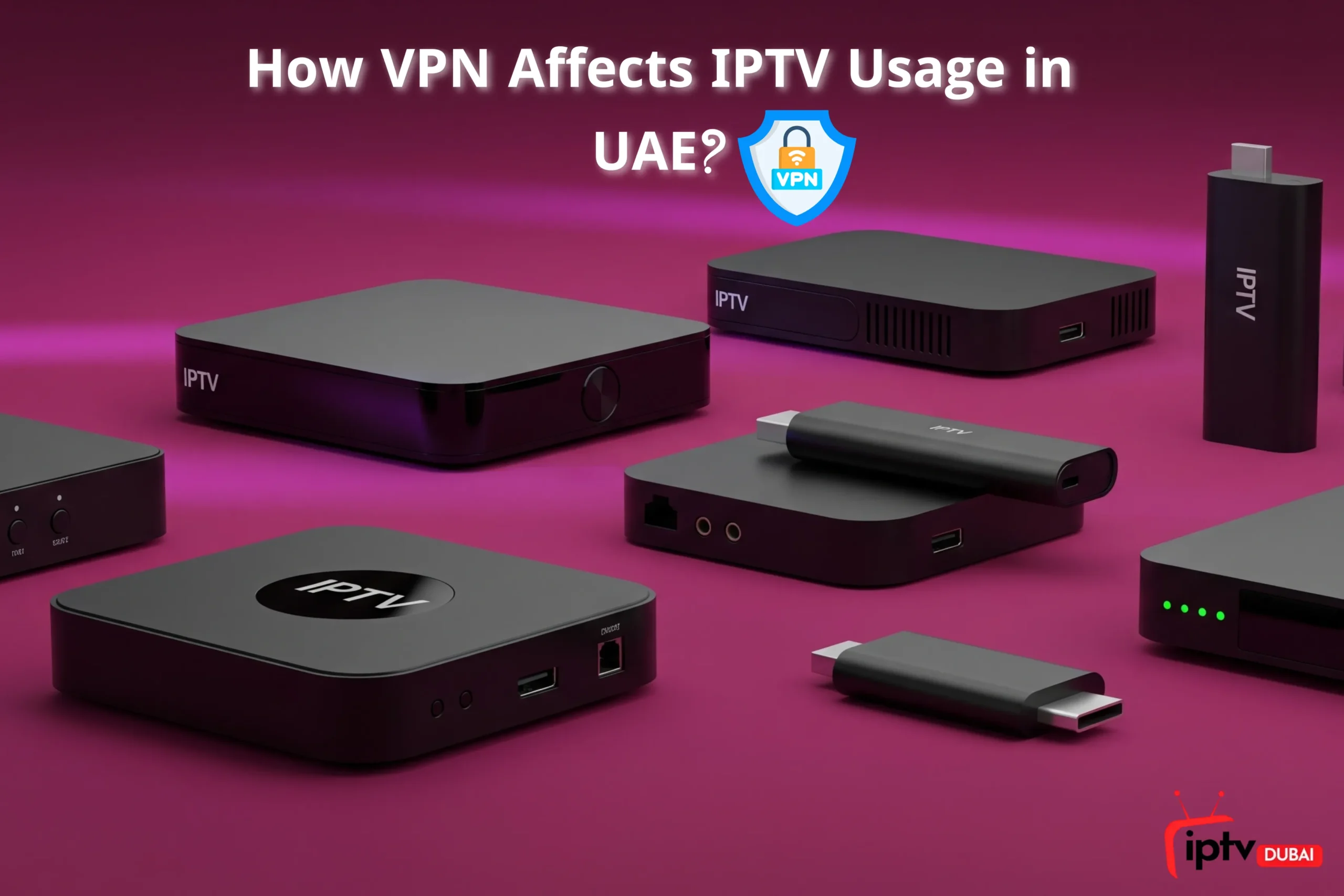Blog
How VPN Affects IPTV Usage in UAE

The digital entertainment landscape in the United Arab Emirates has evolved dramatically with the rise of Internet Protocol Television (IPTV) services. As streaming technology becomes increasingly sophisticated, UAE residents are exploring various ways to access global content libraries, often turning to Virtual Private Networks (VPNs) to enhance their viewing experience. However, the intersection of VPN technology and IPTV usage in the UAE presents a complex web of legal, technical, and regulatory considerations that every user must understand.
The relationship between VPNs and IPTV services in the UAE is particularly nuanced due to the country’s strict telecommunications regulations and content policies. While IPTV technology offers unprecedented access to television content through internet protocols, the use of VPNs to bypass geographical restrictions raises important questions about compliance with local laws and regulations.
Legal Framework of IPTV in UAE
Authorized vs. Unauthorized IPTV Providers
The UAE maintains a clear distinction between legitimate IPTV service providers and unauthorized streaming platforms. Licensed IPTV services operate under strict regulatory oversight, ensuring content compliance with local cultural and legal standards. These authorized providers work directly with telecommunications companies like Etisalat and Du to deliver high-quality streaming content to customers across Dubai and other emirates.
Authorized IPTV services typically offer:
- Licensed content from major studios and networks
- Reliable customer support and technical assistance
- Compliance with UAE content regulations
- Integration with local payment systems
- Quality assurance for streaming performance
In contrast, unauthorized IPTV providers often operate outside regulatory frameworks, offering access to premium channels, movies, and series without proper licensing agreements. These services frequently rely on customers using VPNs to access their content, creating potential legal complications for users.
Regulatory Policies and Enforcement
The Telecommunications and Digital Government Regulatory Authority (TDRA) actively monitors and enforces IPTV regulations throughout the UAE. Recent enforcement actions have resulted in significant fines for individuals and organizations operating unauthorized streaming services. The regulatory framework specifically targets:
- Unlicensed content distribution
- Copyright infringement through streaming platforms
- Circumvention of content protection measures
- Commercial operation of unauthorized IPTV services
Service providers must obtain proper licensing and demonstrate compliance with content standards before offering IPTV services to UAE residents. This regulatory approach ensures that streaming technology serves the market while respecting intellectual property rights and cultural sensitivities.
VPN Role in Bypassing Restrictions
Geo-restrictions and VPNs
Many popular streaming platforms, including Netflix, implement geo-restrictions that limit content availability based on the user’s geographical location. VPN technology allows users to mask their actual location by routing internet traffic through servers in different countries, potentially accessing region-locked content libraries.
However, this practice raises several concerns:
- Violation of streaming service terms of service
- Potential breach of content licensing agreements
- Circumvention of regulatory compliance measures
- Impact on content creators’ revenue distribution
Premium VPN services like NordVPN offer sophisticated geo-spoofing capabilities, but users must consider the legal implications of accessing restricted content through these methods.
ISP Throttling and Workarounds
Internet Service Providers (ISPs) in the UAE sometimes implement traffic management policies that can affect streaming quality, leading to buffering issues during peak usage periods. VPNs can potentially help users avoid ISP throttling by encrypting traffic and making it difficult for providers to identify and limit streaming activities.
Common ISP management practices include:
- Bandwidth allocation during high-traffic periods
- Quality of Service (QoS) prioritization
- Deep packet inspection for traffic analysis
- Selective throttling of streaming protocols
While VPNs may offer technical solutions to these challenges, users should understand that circumventing ISP policies may violate service agreements and local regulations.
Legal Implications of Using VPN for IPTV
Risks of Accessing Unauthorized Content
Using VPNs to access unauthorized IPTV content exposes users to significant legal risks in the UAE. The country’s cybercrime laws specifically address the use of technology to circumvent content restrictions and access copyrighted material without authorization.
Key legal risks include:
- Copyright infringement penalties
- Violation of telecommunications regulations
- Breach of VPN usage policies
- Potential criminal charges for commercial-scale violations
The legal framework treats individual users and commercial operators differently, with more severe penalties typically reserved for those who profit from unauthorized content distribution.
Legal Consequences and Penalties
Recent enforcement actions have demonstrated the UAE’s commitment to protecting intellectual property rights in the digital streaming space. Penalties for unauthorized IPTV usage can include:
- Fines ranging from AED 50,000 to AED 2 million
- Imprisonment for repeat offenders
- Confiscation of devices used for illegal streaming
- Permanent bans from telecommunications services
The severity of penalties often depends on the scale of violation, commercial intent, and cooperation with authorities during investigations.
Technical Challenges of VPN Use in UAE
VPN Detection by ISPs
Major telecommunications providers in the UAE have invested heavily in VPN detection technology to identify and manage encrypted traffic on their networks. These detection mechanisms can identify VPN usage patterns even when traffic is encrypted, leading to potential service restrictions or account monitoring.
Advanced detection methods include:
- Deep packet inspection (DPI) technology
- Traffic pattern analysis
- IP address blacklisting
- Protocol fingerprinting techniques
Blocking Mechanisms Employed by Etisalat and Du
Both Etisalat and Du have implemented sophisticated blocking mechanisms to prevent unauthorized VPN usage and ensure compliance with regulatory requirements. These measures include:
Etisalat’s Approach:
- Real-time traffic monitoring
- Automated VPN server blocking
- Customer notification systems
- Graduated response policies
Du’s Strategy:
- Proactive VPN detection algorithms
- Content filtering integration
- Customer education programs
- Compliance reporting mechanisms
These blocking mechanisms continuously evolve to address new VPN technologies and circumvention methods, creating an ongoing technical challenge for users attempting to bypass restrictions.
Balancing Privacy and Compliance
Benefits of VPN for Online Privacy
Despite regulatory challenges, VPNs offer legitimate privacy and security benefits that align with responsible internet usage:
- Protection of personal data on public networks
- Enhanced security for online banking and shopping
- Privacy protection from data collection
- Secure remote access for business applications
These legitimate uses of VPN technology are generally accepted within the UAE’s regulatory framework when used in compliance with local laws.
Aligning VPN Use with Local Regulations
Responsible VPN usage in the UAE requires understanding and respecting local regulations while leveraging technology for legitimate purposes. Best practices include:
- Using VPNs only for authorized activities
- Respecting content licensing agreements
- Avoiding circumvention of regulatory measures
- Choosing reputable VPN providers with transparent policies
Users should prioritize compliance with local laws over access to restricted content, ensuring their technology use supports rather than undermines the regulatory framework.
Cybersecurity Considerations
Potential Cyber Threats with Unauthorized IPTV
Unauthorized IPTV services often lack proper security measures, exposing users to various cyber threats:
- Malware distribution through streaming applications
- Data theft from unsecured platforms
- Financial fraud through illegitimate payment systems
- Identity theft from compromised user accounts
These security risks compound the legal challenges associated with unauthorized streaming services.
VPN Security Features and Limitations
While VPNs offer security benefits, they also have limitations that users must understand:
Security Features:
- Traffic encryption and tunneling
- IP address masking
- DNS leak protection
- Kill switch functionality
Limitations:
- Potential logging by VPN providers
- Vulnerability to advanced detection methods
- Performance impact on streaming quality
- Limited protection against malicious content
Users should carefully evaluate VPN providers’ security policies and technical capabilities before relying on these services for online protection.
Conclusion: Navigating the IPTV and VPN Landscape in UAE
The relationship between VPN technology and IPTV usage in the UAE requires careful navigation of legal, technical, and regulatory considerations. While VPNs offer legitimate privacy and security benefits, their use to circumvent content restrictions and access unauthorized IPTV services carries significant legal risks.
UAE residents interested in streaming content should prioritize authorized IPTV service providers that comply with local regulations and offer legitimate access to entertainment content. When using VPN technology, focus on legitimate privacy and security applications rather than circumventing geo-restrictions or accessing unauthorized content.
The evolving regulatory landscape and advancing detection technologies suggest that the most sustainable approach involves working within the established legal framework while advocating for expanded legitimate content access through proper channels. By understanding the complex interplay between VPNs, IPTV services, and UAE regulations, users can make informed decisions that balance their entertainment needs with legal compliance and cybersecurity best practices.
As the digital entertainment industry continues to evolve, staying informed about regulatory changes and technological developments will be essential for anyone using streaming services and VPN technology in the UAE. The key to successful navigation of this landscape lies in prioritizing compliance, security, and responsible technology use while enjoying the benefits of modern streaming entertainment.



















